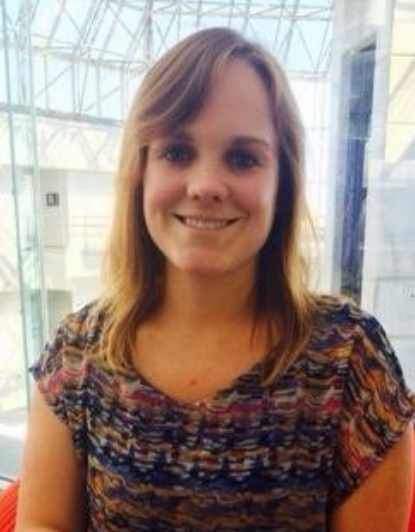Dr. Natalie Benda, instructor of population health sciences, has been awarded a Pathway to Independence Award (K99) by the National Institute on Minority Health and Health Disparities (NIMHD) for her project, “Maternal Outcome Monitoring and Support (MOMS) - A mHealth symptom self-monitoring and decision support system to reduce racial and ethnic disparities in postpartum outcomes.”

Dr. Natalie Benda
According to the Centers for Disease Control and Prevention, the maternal mortality rate in the United States is much higher than in other industrialized nations. Further, within the United States, significant racial and ethnic gaps exist in the maternal mortality rates between non-Hispanic Black, non-Hispanic white, and Hispanic women. Dr. Benda’s work focuses on reducing these disparities and ensuring patients have contact with their providers to address potential postpartum health concerns.
She is currently developing the maternal outcome monitoring system. The mobile health tool will allow women to report different symptoms they are experiencing in a structured way. It will then provide feedback such as, “I am sorry you are feeling that way, but that is normal and here are some things that you can try at home.” Alternatively, “That is concerning. We recommend that you call your obstetrician and mention specific symptoms.”
Dr. Benda is hopeful that this will empower more women to seek care, especially patients who do not feel understood or prioritized by the healthcare system. Specifically, she is focused on designing this tool for Black and Spanish-speaking Latina women.
For a number of years, Dr. Benda has been interested in working with patients with limited English proficiency. To reduce disparities and severe maternal morbidity and mortality among these populations, healthcare providers must first help patients understand their symptoms and communicate them effectively.
“It is really scary when you go to the healthcare system, and you don't necessarily speak the language. That is one of the reasons I wanted to focus on Spanish-speaking Latina patients,” she said. “As a health equity researcher, I know that the disparities for Black versus white women in this period are stark, so I wanted do something to help bridge that gap. This is one of the biggest health equity issues that we are currently facing.”
In the project’s current phase, Dr. Benda is interviewing mental health providers and obstetrician health professionals. She is also interviewing high-risk mothers during their first year postpartum to learn how they dealt with their symptoms and what could have been helpful. Next, she will expand this to a large national survey to develop a consensus on what new mothers need help with and how they would want to use a mobile health tool to report and get feedback about their symptoms.
Dr. Benda is extremely grateful to the collaborators who have helped her with this project thus far and will continue to support her. Weill Cornell Medicine faculty members Dr. Ruth Masterson Creber, associate professor of population health sciences; Dr. Robin Kalish, associate professor of obstetrics and gynecology; Dr. Laura Riley, chair and Given Foundation Professor in Clinical Obstetrics and Gynecology; and Dr. Jessica Ancker, adjunct associate professor of population health sciences at Weill Cornell Medicine and professor of biomedical informatics and vice-chair for educational affairs at Vanderbilt University Medical Center; among others, have all made important contributions to this work and Dr. Benda’s professional development.
“I am about six months into this project, and I would not have been able to get here without their support,” Dr. Benda said. “I am really hopeful that we can turn this into something that will one day help patients.”
Looking forward, Dr. Benda hopes to complete feasibility and acceptability testing after the development of the tool. From there, a pilot trial will help her understand how patients use it for the six-week postpartum period. She is eager to learn if it improves their knowledge of symptoms, as well as their perceived self-efficacy with dealing with those symptoms. If all goes well, she would like to expand the use of this tool beyond New York City.
The Department of Population Health Sciences addresses the intersection of health and practice. Serving as a collaborative and interdisciplinary hub for clinical research, the Department aims to improve the health of populations and reduce inequities through applied research, technological innovations, and novel education programs.
- Highlights

